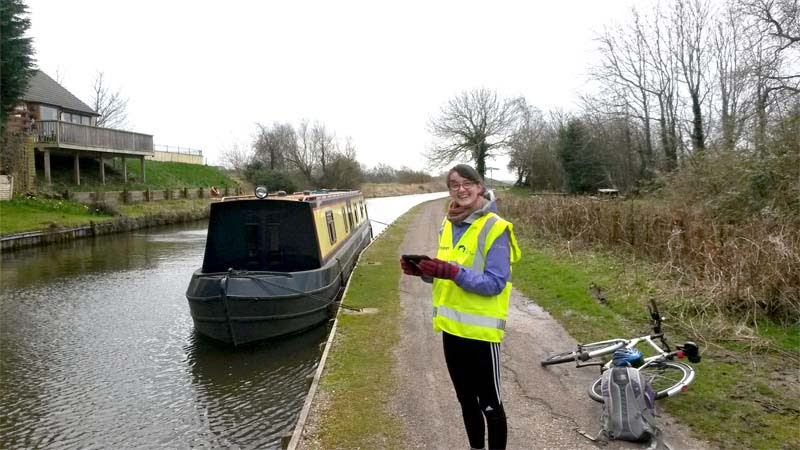Volunteers from Lancaster University are working with the Canal & River Trust to protect water quality on the Lancaster Canal to ensure a healthy eco system for plants, fish and wildlife.
When surface water from rainfall runs off into the canal system, it can carry pollutants including oils, chemicals and silt which all affect water quality.
Unlicensed outlets into the canal are also a significant issue for the environmental management of the canal network and it is vital that the Canal & River Trust monitors what is being discharged into the canal.
The volunteers have carried out a survey of the canal, identifying the pipes and drains which discharge into the canal and noting whether there are any signs of pollution.
The data is then being mapped and examined by the environmental team, who will follow up any potential pollution hazards.
The information will also be used by the Trust’s experts who manage agreements with adjacent land owners and wish to discharge surface water into the canal system, generating income to look after the waterway.
Canal & River Trust environmental scientist, Louie Ramsden said: “Our canals and waterways are havens for plants and animals and it is essential that we look after the water quality to safeguard their survival.
“Although this is not a new problem, until now we have been short of resources to tackle it. However we were able to run a volunteer induction day recently which brought an excellent response from a group of keen students from Lancaster University.
“The students have now completed the survey, helping us safeguard the water quality of the Lancaster Canal and getting a whole new perspective of a canal which has been on their doorstep during their studies.
“Sightings of Otters on the Lancaster Canal in recent months is a sign that the canal is in good health. Otters can only live somewhere where there is a healthy fish population and fish cannot live somewhere with pollution. We have signs of a healthy canal that can support a wide range of animals, but this can be at risk from pollution making these types of surveys all the more important.”

